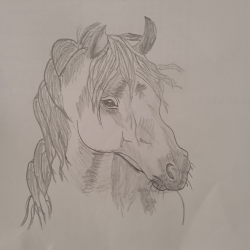

Arriving at the chessboard is like entering a long-awaited party. All my old friends are here:
Royal couple, their partner, the right of peace of mind of the noble infantry. I adjusted them, making sure they were positioned optimally in the center of the starting square, a nervous and nervous tactile caress. I know these parts and I care about them. They are my responsibility. And I am grateful to my opponent for making me treat him kindly.
In many ways, I owe chess everything. Since the age of five, the game has become a source of friendship, refuge and growth, and I have been a grandmaster for 20 years. The lifetime title is the highest honor awarded to a chess player and is based on the performance of three qualifying standards in international events usually the highest achievement, combined with a reflective international ranking. The level of competition is always high - all endorsed by FIDE, the world of chess. League. There are about 1,500 grandmasters in the world. At my peak, I was just outside the top 100 in the world and I feel a bit sorry that I didn't climb any higher, but I know that there is a limit. Even without a plan A for my life, chess has always felt like a plan B, mainly because I can't imagine giving up on competitive ambition. I haven't trained or competed with serious professional intent in over a decade, and although my mind is still enthralled by the game, my soul feels free from it.
Over the past few years, I have worked in academia and public policy contexts, trying to bring our understanding of complex social challenges into our inner lives, while also taking care of our two children. his son. A lot of things I miss about not being an active player. I remember the feeling of strength, power, and dignity that accompanies making the right decisions under pressure. I remember the clarity of goal in every moment of every match, the luck that escaped defeat and the thrill of chasing victory. But most of all, I miss the experience of concentration.
I can still concentrate, of course, but not with the reliability and intensity that professional chess life brings. In fact, from afar, chess seems questionable to me as a socially acceptable excuse to concentrate for several hours straight. In The Island from the Day Before (1994), Umberto Eco writes a love letter that reads:
“[Only in your prison [my heart] enjoys the highest freedoms” – the same can be said of chess, and the experience of concentration is what makes this possible. exam. I believe that concentration is a defining characteristic of a fulfilling life, a habit of thought necessary for a viable civilization, and that chess can teach us more about the true meaning of success. concentrate.


